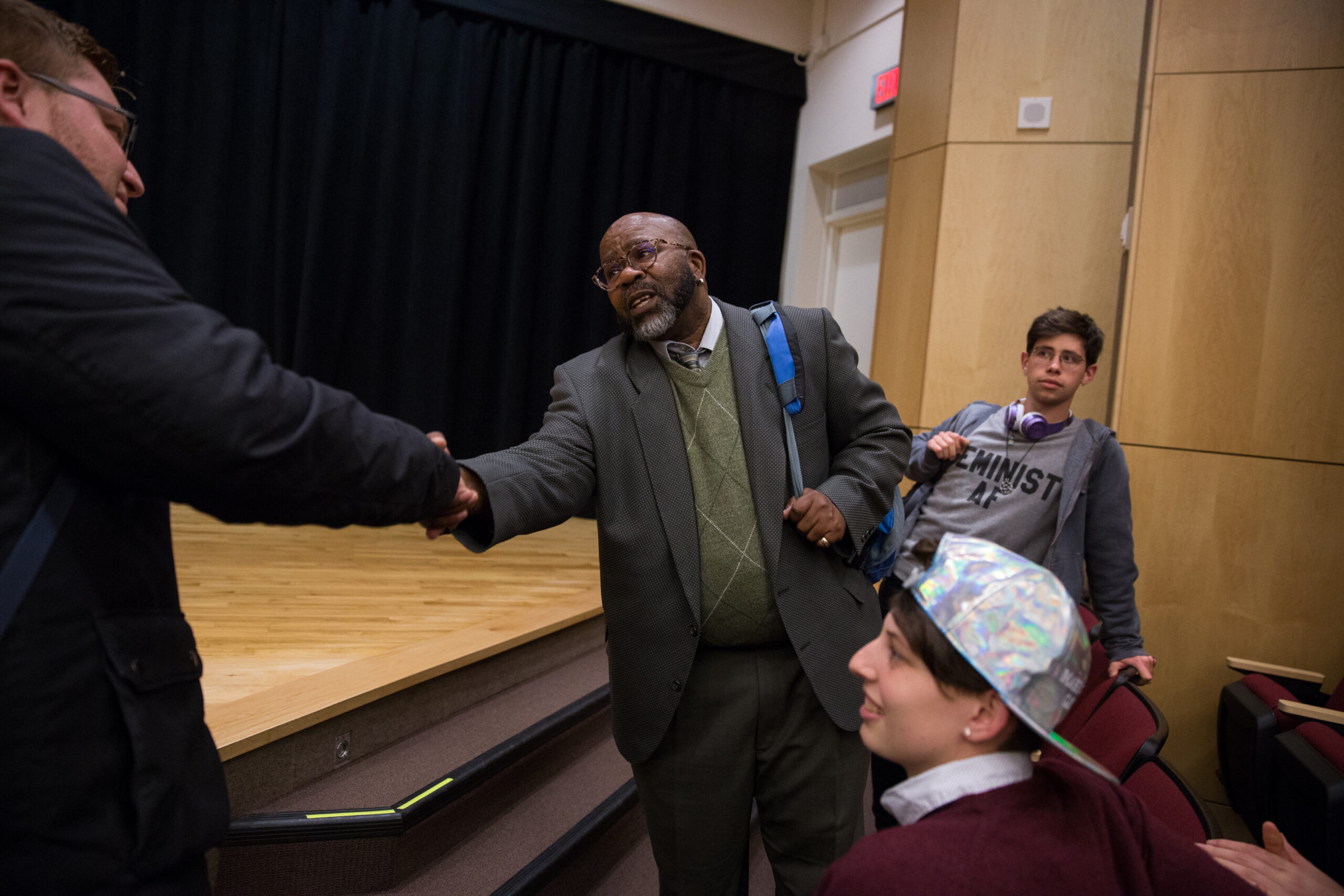OUTtober strives for intersectionality, inclusion
October 13, 2017
 Ann Basu
Ann BasuBy hosting speakers from a queer disabled writer to a black transgender reverend, Bowdoin Queer Straight Alliance (BQSA) hopes that the first annual “OUTtober” will reflect and engage with a wider range of Bowdoin’s LGBTQ community.
BQSA has a history of folding puns into the names of its awareness initiatives. First there was Gaypril, which was replaced by Februqueery. This year the club debuted a new month of programming along with a new pun: OUTtober.
For many students on campus, however, the name is more than a catchy play on words.
BQSA President Rayne Stone ’18 explained that coming out can be a difficult and dangerous process for members of the LGBTQ community both on and off Bowdoin’s campus.
“[What] we want to do with this month is to have a greater sense of awareness of the struggle that a lot of people, including people on campus are feeling: the pressure to be out and the burden of not being out,” said Stone.
Changing the name from Februqueery to OUTtober reflects BQSA’s desire to include a more diverse range of identities.
“There has been a lot of talk about the word ‘queer,’ how we use it on campus and how it can be really empowering and helpful for some people as an identity and a label but for other people it can feel profoundly uncomfortable or threatening,” Stone said.
Stone aims to engage with all members of the campus LGBTQ community, particularly those who have not been involved with the alliance or its programs in the past.
“I hope that we’ve been intentional enough in the span of programming in that what we’re trying to have happen is everyone in the community can find a place for themselves in what we’re doing and can see themselves reflected and have their voices be heard,” Stone said.
Activist and minister Louis Mitchell delivered OUTtober’s keynote address on October 3 and spoke about his identity and experience as a transgender black man of faith. Mitchell typically prepares for about five minutes before delivering his talks, each of which is unique and extemporaneous.
“[Mitchell] is such an powerful, engaging, honest and genuine speaker, and he keeps it so real, but the things that he’s saying are so vitally important coming from his perspective,” Stone said. “These issues are real. They affect real people.”
Stone and other BQSA members first heard Mitchell speak in January at First Event, an annual conference on issues affecting the transgender and gender variant communities. Mitchell discussed ways in which individuals of all identities can consciously use their unique privileges to highlight the voices and perspectives of people without those privileges. Stone and other BQSA leaders felt that this message would be relevant to Bowdoin’s community and began to plan Mitchell’s visit to campus soon after.
Associate Dean of Students for Diversity and Inclusion Kate Stern praised the leaders of BQSA for their success in reflecting the intersection of different identities represented in the LGBTQ community.
“Sexuality and gender is never all of what somebody is. We are all many different pieces, and I love that [BQSA is] collaborating with the Office of Religious and Spiritual Life, the Disabled Students Association and other student groups to think about how we can be with all of ourselves as opposed to just the one part of ourselves,” said Stern, who is also co-director of the Center for Sexuality, Women & Gender. “I love their approach this year in terms of making it more intersectional and inclusive.”
OUTtober’s second major event took place on Thursday evening when writer and performance artist Leah Lakshmi Piepzna-Samarasinha performed for students. Piepzna-Samarasinha identifies as queer, disabled and gender non-binary.
“There’s literally no discussion of the intersection of disability and the experience of people of color in the broader scope of campus. She talks about [these intersections] so articulately, thoughtfully and artistically,” said Stone.
In addition to engaging with all members of the campus LGBT community, Stone hopes OUTtober will foster meaningful and sustained engagement among campus allies.
“It’s easy enough to come to an OUT Peer/OUT Ally training and have your name on the list, and it’s easy enough to wear the shirt for one day…and then be in a picture,” Stone said. “It’s another thing entirely to show up and support us and keep supporting us.”
BQSA made the decision to move the month of programming from Februqueery in the second semester to OUTtober in the first in order to reach out to first year students who may not be involved with the alliance and to avoid the logistical challenges posed by February’s proximity to winter break. The month expands on OUTweek which BQSA has traditionally observed around National Coming Out Day on October 11.
“Plus,” added Stone, “it’s just a great pun.”

Comments
Before submitting a comment, please review our comment policy. Some key points from the policy: